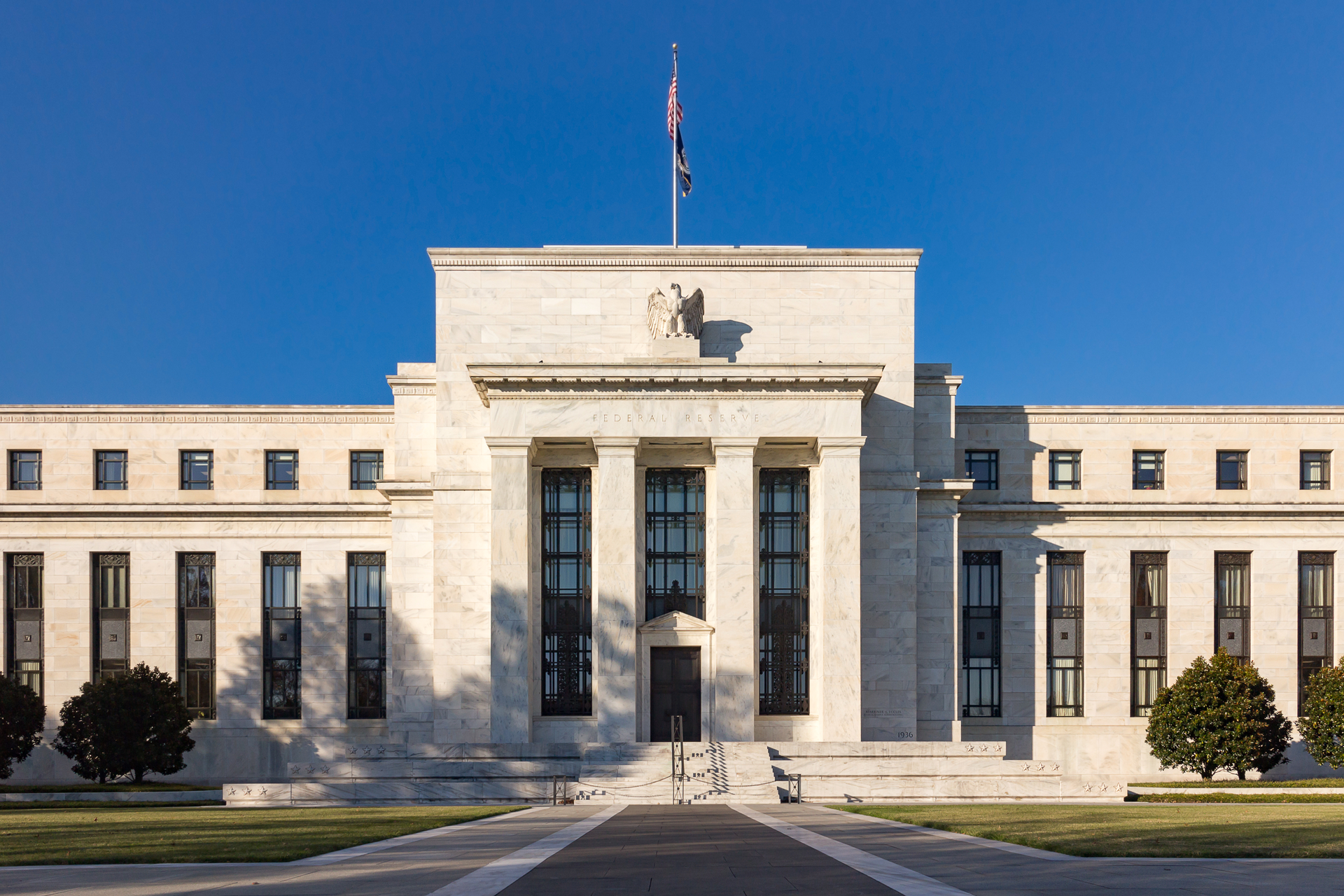Important Message – Fraud Alert / Alerta de Fraude / Alerte à la Fraude
Jefferies has recently learned that unknown persons are using the Jefferies name and the names and photographs of Jefferies employees, without authorization, to offer investment clubs or other investments or employment to individuals around the world, likely for fraudulent purposes. The persons are using the Jefferies name to impersonate Jefferies on fake websites, fake mobile device software, unauthorized accounts on WhatsApp, Telegram and Instagram and unauthorized promotional items such as water bottles and other items, often in Portuguese. Jefferies does not solicit investors through WhatsApp or other social media.
Authentic Jefferies emails are sent only from the Jefferies.com domain (for example jdoe@jefferies.com).
Jefferies only uses the following authentic mobile applications:
https://play.google.com/store/apps/details?id=com.netxinvestor.jefferies&hl=en_US
https://play.google.com/store/apps/details?id=com.meetmax.jefferies&hl=en_US
https://apps.apple.com/us/app/jefferies-conferences-events/id1620227495
https://apps.apple.com/us/app/jefferies-wealth-management/id1502973867
https://apps.apple.com/us/app/jprime/id975164890
https://apps.apple.com/us/app/jefferies-client-portal/id1575735244
Our authentic social media accounts are located at:
https://linkedin.com/company/Jefferies
https://twitter.com/Jefferies
https://www.instagram.com/Jefferies
You should verify that any messages you received were sent from jefferies.com, or via official Jefferies mobile applications listed above, and not from social media accounts.
For additional guidance, see the following government agency alerts (additional government/police guidance may be available in your country):
US Securities and Exchange Commission / Investor.gov:
https://www.investor.gov/introduction-investing/general-resources/news-alerts/alerts-bulletins/investor-alerts/beware-fraudsters-impersonating-investment-professionals-and-firms-investor-alert
US Federal Bureau of Investigation / Business and Investment Fraud:
https://www.fbi.gov/how-we-can-help-you/scams-and-safety/common-frauds-and-scams/business-and-investment-fraud
United Kingdom / Action Fraud Reporting Centre
https://www.actionfraud.police.uk/a-z-of-fraud/investment-fraud
----------------------------------------------------------------------
Português
O Jefferies tomou conhecimento recentemente de que pessoas desconhecidas estão utilizando o nome do Jefferies, bem como os nomes e fotografias de seus funcionários, sem autorização, para oferecer clubes de investimento, outras oportunidades de investimento ou emprego a indivíduos ao redor do mundo — provavelmente com fins fraudulentos.
Essas pessoas estão se passando pelo Jefferies por meio de sites falsos, aplicativos móveis falsos, contas não autorizadas no WhatsApp, Telegram e Instagram, além de materiais promocionais não autorizados, como garrafas de água e outros itens, frequentemente em português. O Jefferies não solicita investidores por meio do WhatsApp ou outras redes sociais.
Os e-mails legítimos do Jefferies são enviados apenas a partir do domínio jefferies.com (por exemplo: [email protected]).
O Jefferies utiliza apenas os seguintes aplicativos móveis oficiais:
https://play.google.com/store/apps/details?id=com.netxinvestor.jefferies&hl=en_US
https://play.google.com/store/apps/details?id=com.meetmax.jefferies&hl=en_US
https://apps.apple.com/us/app/jefferies-conferences-events/id1620227495
https://apps.apple.com/us/app/jefferies-wealth-management/id1502973867
https://apps.apple.com/us/app/jprime/id975164890
https://apps.apple.com/us/app/jefferies-client-portal/id1575735244
Nossas contas oficiais nas redes sociais estão localizadas em:
https://linkedin.com/company/Jefferies
https://twitter.com/Jefferies
https://www.instagram.com/Jefferies
Você deve verificar se qualquer mensagem recebida foi enviada a partir do domínio jefferies.com, e não por redes sociais ou aplicativos não listados acima.
Para orientações adicionais, consulte os alertas das seguintes agências governamentais (podem haver orientações adicionais disponíveis em seu país):
US Securities and Exchange Commission / Investor.gov
https://www.investor.gov/introduction-investing/general-resources/news-alerts/alerts-bulletins/investor-alerts/beware-fraudsters-impersonating-investment-professionals-and-firms-investor-alert
FBI / Fraudes Empresariais e de Investimento
https://www.fbi.gov/how-we-can-help-you/scams-and-safety/common-frauds-and-scams/business-and-investment-fraud
Reino Unido / Action Fraud Reporting Centre
https://www.actionfraud.police.uk/a-z-of-fraud/investment-fraud
Política Federal do Brasil
https://www.gov.br/pf/pt-br/canais_atendimento/comunicacao-de-crimes
----------------------------------------------------------------------
Español
Recientemente, Jefferies tomó conocimiento de que personas desconocidas han utilizado, sin autorización, la marca de Jefferies y los nombres y las fotografías de sus empleados para ofrecer clubes de inversión u otras inversiones, o empleos, a personas de todo el mundo, probablemente con fines fraudulentos. Estas personas utilizan la marca de Jefferies para simular ser la empresa en sitios web falsos, en software móviles falsos, cuentas no autorizadas de WhatsApp, Telegram e Instagram y elementos de promoción no autorizados, tales como botellas de agua y otros artículos, a menudo en idioma portugués. Jefferies no capta inversores a través de WhatsApp u otras redes sociales.
Los correos electrónicos de Jefferies verdaderos se envían únicamente desde el dominio Jefferies.com (por ejemplo: [email protected]).
Estas son las únicas aplicaciones móviles auténticas que utiliza Jefferies:
https://play.google.com/store/apps/details?id=com.netxinvestor.jefferies&hl=en_US
https://play.google.com/store/apps/details?id=com.meetmax.jefferies&hl=en_US
https://apps.apple.com/us/app/jefferies-conferences-events/id1620227495
https://apps.apple.com/us/app/jefferies-wealth-management/id1502973867
https://apps.apple.com/us/app/jprime/id975164890
https://apps.apple.com/us/app/jefferies-client-portal/id1575735244
Las URL de nuestras redes sociales auténticas son las siguientes:
https://linkedin.com/company/Jefferies
https://twitter.com/Jefferies
https://www.instagram.com/Jefferies
Al recibir cualquier tipo de mensaje, siempre verifique que haya sido enviado desde el dominio Jefferies.com o a través de alguna de las aplicaciones móviles de Jefferies indicadas arriba, y no desde cuentas de redes sociales.
Para conocer más información, lea las siguientes alertas emitidas por agencias gubernamentales (es posible que en su país existan guías adicionales por parte de su gobierno o policía local):
Comisión de Bolsa y Valores de los Estados Unidos / Investor.gov:
https://www.investor.gov/introduction-investing/general-resources/news-alerts/alerts-bulletins/investor-alerts/beware-fraudsters-impersonating-investment-professionals-and-firms-investor-alert
Buró Federal de Investigaciones / Fraudes Comerciales y de Inversiones:
https://www.fbi.gov/how-we-can-help-you/scams-and-safety/common-frauds-and-scams/business-and-investment-fraud
Centro de Denuncias de Acción contra el Fraude del Reino Unido:
https://www.actionfraud.police.uk/a-z-of-fraud/investment-fraud
----------------------------------------------------------------------
Français
Jefferies a récemment appris que des inconnus utilisaient sans autorisation le nom de Jefferies ainsi que les noms et photographies de ses employés, pour proposer des clubs d'investissement, d'autres investissements ou des emplois à des personnes du monde entier, probablement à des fins frauduleuses. Ils utilisent le nom de Jefferies pour se faire passer pour Jefferies sur de faux sites web, de faux logiciels pour appareils mobiles, des comptes non autorisés sur WhatsApp, Telegram et Instagram, ainsi que des articles promotionnels non autorisés tels que des bouteilles d'eau et autres articles, souvent en portugais. Jefferies ne sollicite pas d'investisseurs via WhatsApp ou d'autres réseaux sociaux.
Les e-mails authentiques de Jefferies sont uniquement envoyés depuis le domaine Jefferies.com (par exemple, [email protected]).
Jefferies n’utilise que les applications mobiles authentiques suivantes:
https://play.google.com/store/apps/details?id=com.netxinvestor.jefferies&hl=en_US
https://play.google.com/store/apps/details?id=com.meetmax.jefferies&hl=en_US
https://apps.apple.com/us/app/jefferies-conferences-events/id1620227495
https://apps.apple.com/us/app/jefferies-wealth-management/id1502973867
https://apps.apple.com/us/app/jprime/id975164890
https://apps.apple.com/us/app/jefferies-client-portal/id1575735244
Nos comptes authentiques sur les réseaux sociaux se trouvent aux adresses suivantes:
https://linkedin.com/company/Jefferies
https://twitter.com/Jefferies
https://www.instagram.com/Jefferies
Vérifiez que tous les messages reçus ont bien été envoyés depuis jefferies.com ou via les applications mobiles officielles de Jefferies mentionnées ci-dessus, et non depuis des comptes de réseaux sociaux.
Pour plus d'informations, consultez les alertes émises par les agences gouvernementales suivantes (d'autres informations peuvent être disponibles dans votre pays auprès des autorités gouvernementales/policières):
Commission Américaine des Opérations Boursières /Investor.gov:
https://www.investor.gov/introduction-investing/general-resources/news-alerts/alerts-bulletins/investor-alerts/beware-fraudsters-impersonating-investment-professionals-and-firms-investor-alert
Bureau Fédéral d'Enquête des États-Unis/La Fraude Commerciale et la Fraude en Matière d'Investissement :
https://www.fbi.gov/how-we-can-help-you/scams-and-safety/common-frauds-and-scams/business-and-investment-fraud
Centre Britannique de Signalement des Fraudes:
https://www.actionfraud.police.uk/a-z-of-fraud/investment-fraud
----------------------------------------------------------------------
Korean
제프리스는 최근 알려지지 않은 사람들이 제프리스 이름과 직원들의 이름, 사진을 무단으로 사용하여 전 세계 개인들에게 투자 클럽이나 기타 투자 또는 고용을 제공하고 있다는 사실을 알게 되었으며, 이는 사기 목적으로 추정됩니다. 이들은 제프리스 이름을 이용해 가짜 웹사이트, 가짜 모바일 기기 소프트웨어, WhatsApp, Telegram, Instagram의 무단 계정, 그리고 물병 등 무단 홍보물(주로 포르투갈어)에서 제프리스를 사칭하고 있습니다. 제프리스는 WhatsApp이나 기타 소셜 미디어를 통해 투자자를 모집하지 않습니다.
Jefferies의 이메일은 오직 Jefferies.com 도메인에서만 전송됩니다(예: [email protected]).
제프리스는 다음과 같은 모바일 애플리케이션만 사용합니다:
https://play.google.com/store/apps/details?id=com.netxinvestor.jefferies&hl=en_US
https://play.google.com/store/apps/details?id=com.meetmax.jefferies&hl=en_US
https://apps.apple.com/us/app/jefferies-conferences-events/id1620227495
https://apps.apple.com/us/app/jefferies-wealth-management/id1502973867
https://apps.apple.com/us/app/jprime/id975164890
https://apps.apple.com/us/app/jefferies-client-portal/id1575735244
저희의 소셜 미디어 계정은 다음 주소에 위치해 있습니다:
https://linkedin.com/company/Jefferies
https://twitter.com/Jefferies
https://www.instagram.com/Jefferies
받은 메시지는 jefferies.com 에서 발송되었거나 위에 나열된 공식 Jefferies 모바일 애플리케이션을 통해 발송된 것인지 반드시 확인해야 하며, 소셜 미디어 계정에서 발송된 것이 아닌지 확인해야 합니다.
추가 지침은 다음 정부 기관 알림을 참고하세요(귀하의 국가에서 추가 정부/경찰 지침이 있을 수 있습니다):
South Korea / Financial Supervisory Service
금융감독원 통합홈페이지
https://www.fss.or.kr/fss/main/main.do?menuNo=200000
US Securities and Exchange Commission / Investor.gov:
https://www.investor.gov/introduction-investing/general-resources/news-alerts/alerts-bulletins/investor-alerts/beware-fraudsters-impersonating-investment-professionals-and-firms-investor-alert
US Federal Bureau of Investigation / Business and Investment Fraud:
https://www.fbi.gov/how-we-can-help-you/scams-and-safety/common-frauds-and-scams/business-and-investment-fraud
United Kingdom / Action Fraud Reporting Centre
https://www.actionfraud.police.uk/a-z-of-fraud/investment-fraud




